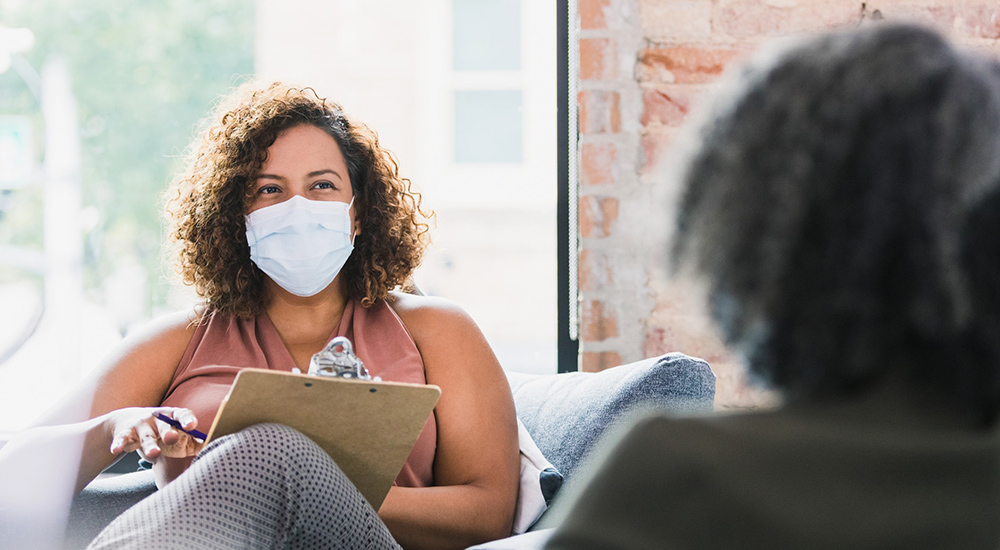Visibly shaking and in tears, a woman whose Veteran husband had recently died came to a free legal clinic at the Toledo Community-Based Outpatient Center (CBOC) for help. Just one month after her Veteran’s death, the widow was behind on her bills. She couldn’t make the payment for a trailer lot she and her husband had purchased. Through the clinic, a lawyer connected the widow with an organization that not only helped with her immediate money concerns. It also helped her learn about Social Security and other benefits she could get as the surviving spouse of an 80% service-connected disabled Veteran.
The clinic is a partnership between VA Ann Arbor Medical Center, the Toledo CBOC and the Toledo Bar Association.
Partnerships like these help Veterans, their families, caregivers and survivors. They are recognized in an annual contest called the VHA Community Partnership Challenge. VHA’s Office of Community Engagement (OCE) manages the projects. The legal clinic is one of the top three winners for 2020.
Social determinants of health
All the contest winners focus on helping Veterans with what are called the “social determinants of health” (SDOH). These are the conditions in the environments where Veterans live, learn, work, play, worship and age.
Examples of SDOH are access to housing, jobs and transportation—conditions that help Veterans stay healthy.
“Releasing Veterans of legal burdens along with other burdens related to SDOH also aids in reducing the overall stress of life,” said Leslie B. Witherell of the VA Ann Arbor Medical Center Toledo CBOC.
Another winning partnership, between Cincinnati VA Medical Center (VAMC) and Freestore Foodbank, has provided more than 10,000 meals to Veterans and their families.
“Food insecurity is often a difficult conversation to have with our proud Veterans who have a difficult time accepting help,” said Dr. Sara M. Krzywkowski-Mohn, Cincinnati VAMC. “Team members can immediately access the food pantry. They can fill several bags of nutritious non-perishable foodstuffs and help the Veteran and his family that day.”
If Veterans need a long-term solution, Social Work Services can help them apply for food benefits such as the Supplemental Nutrition Assistance Program (SNAP).
Turn Around Tuesday turned him around
Another winning collaboration between Ralph H. Johnson VAMC and Lowcountry Hospitality Association has placed 97 Veterans in hospitality careers in the Charleston, South Carolina, area. The Turnaround Tuesday program helped a Veteran who suffered from alcohol addiction and depression. After losing his mother, his job, car, and home, he now has a job at a hotel, lives in an apartment he pays for himself, and has been sober for more than three years.
“Once a Veteran is able to independently support themselves they are able to pay for safe housing. Employment not only contributes to physical safety, it gives them psychological safety as a contributing member of society, giving them daily purpose,” said Erin Curran of Ralph H. Johnson VAMC.
The winning VHA and community partners were honored at a virtual ceremony on Aug. 27.
For more information on OCE’s work, please visit va.gov/healthpartnerships.
Georgeanna Bady is a health systems specialist for the VHA Office of Community Engagement.
Topics in this story
More Stories
Veteran Byron Potier weighed almost 300 pounds and was tired and lethargic. He was the perfect candidate for gastric sleeve surgery.
How much do you know about VA care, benefits and services? Don’t miss out on what you've earned—check out the "2025 VA Federal Benefits Guide for Veterans, Dependents, Survivors, and Caregivers" handbook to learn more.
Feeling stressed? Your breath can help you relax and focus. Take 3 minutes to reset and prioritize your well being for this week's #LiveWholeHealth practice.







